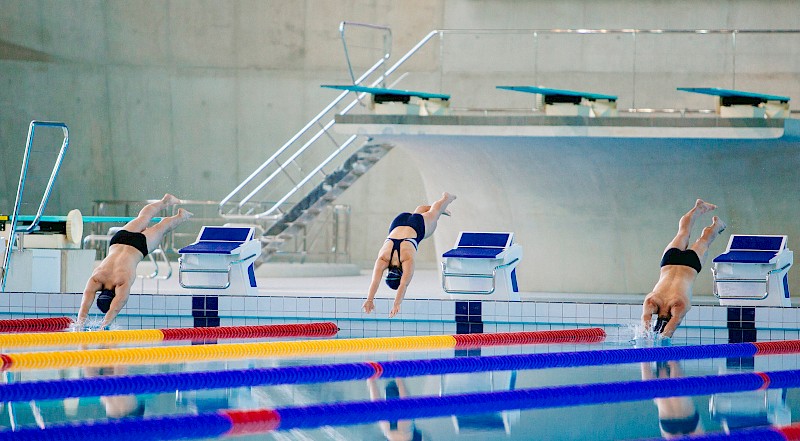Technique is tedious, this is because one does not always see its usefulness; and it requires patience in order to reap tangible rewards. Moreover, when you devote time to swimming technique, you subtract it from volume, which, in the view of the ordinary athlete, always plays the role of the alpha parameter.
Importance of making sense
The reiteration of a technical gesture repeated mechanically and whose purpose is not clear causes the mind to disconnect and what should represent a path of research full of nuances of colour becomes a blind alley surrounded by grey; whoever proposes an exercise (coach) must therefore draw attention to at least one detail to be sought during execution.

Let's take an example of a basic exercise: freestyle, single arm in motion.
- There are several ways of performing the exercise in its essence: let us now consider the variant with one arm stationary along the body and the other in constant movement, breathing on the side of the moving arm. Usually the proposal is simply to do this exercise for a few metres and without indicating any focus to develop. But without a focus, incorrect gestures are developed and nurtured, which are unconsciously structured and become part of rigid motor schemes, therefore difficult to correct (contracted shoulder movement, incorrect rotation times (also of the head) in the breathing phase, ineffective support phase of the stroke, etc.). If, on the other hand, there were clarity about the purpose, or rather, the aims of the exercise, the mistakes made would be processed in the form of experience and, once one has understood one's mistakes, transformed into strengths. For example, the delivery could be to perform a more effective shoulder rotation (lifting the one of the stationary arm every time the moving arm is in the support phase) for 25m and for another 25m swim regularly (so with both arms in motion), trying to perform a shoulder rotation similar to the one just developed, in this way one would make sense of a technical aspect by immediately trying to apply it.
It does not matter how long it takes to make this skill an integral part of swimming interpretation: once a motor skill is acquired, it becomes a tool that will sooner or later come in handy without knowing it.
Turning discomfort into opportunity
The exercise thus represents a simulated or real problem and the ability to solve it is given by the motor skills developed in the search for the solution. The aim is to apply the newly acquired skills to the coding of one of the four styles you are concentrating on (freestyle, backstroke, breaststroke or dolphin) and not leave the exercise as an end in itself.
Each adaptation problem presents multiple solutions as it is closely linked to the individual's processing capacity; delving into solutions that are apparently unsuccessful nonetheless allows one to acquire information that is fundamental later on for developing alternatives.
Water is a simple element that forces humility and introspection to transform discomfort into opportunity. Increasing the feeling with the water environment deepens integration and restores our self-confidence. The basis of technique in water is nothing other than the development of what has just been said.
Sport in general is made up of many bricks that are put in, taken out, modified, moved and structured according to strategies and programming, the facets planned, sought and deepened.
